
4 Exercises to Strengthen the Rotator Cuff
Leave a CommentThe rotator cuff is a hot topic when it comes to shoulder injuries. A rotator cuff is an important group of four muscles that help move the shoulder to perform activities of daily living. Damage to one or more of the rotator cuff muscles can become a source of pain, reduced range of motion, reduced strength, or overall function. It is important to keep this muscle group strong to minimize injury and recover from a shoulder injury. Let’s look at some exercises that you can do at home to strengthen the rotator cuff.
1. Side-lying Shoulder External Rotation
- Lay on your side with a towel roll between your arm and your side
- Slowly rotate your forearm upward
- Return the arm to the starting position
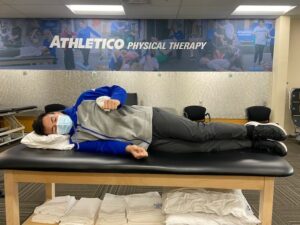
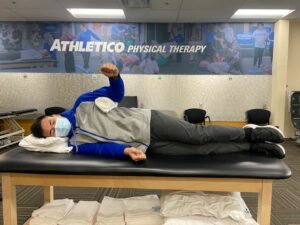
You can modify for difficulty level by performing the exercise with a one-two pound weight. To progress even further, use the weights and then pause 3-5 seconds at the top before returning to the starting position.
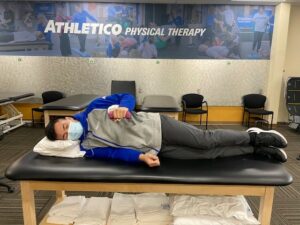
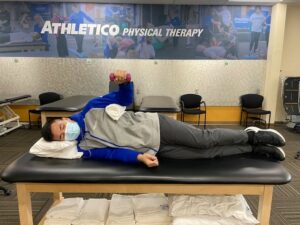
2. Standing Shoulder External Rotation
- Stand with a towel toll between your arm and your side
- Rotate the forearm outward
- Return the arm to the starting position
- Keep the torso stationary and allow the movement to only come from the upper arm/shoulder

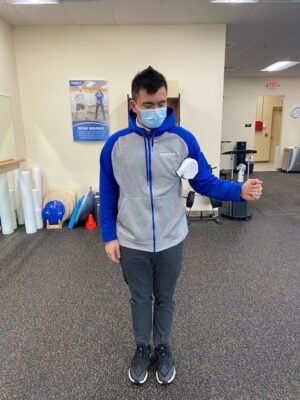
You can modify for difficulty level by holding an anchored resistance band while performing the exercise. To progress even further, hold an anchored resistance band and pause for 3-5 seconds at the end of the rotation before returning to the start position.
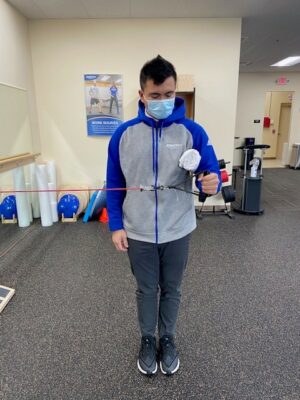
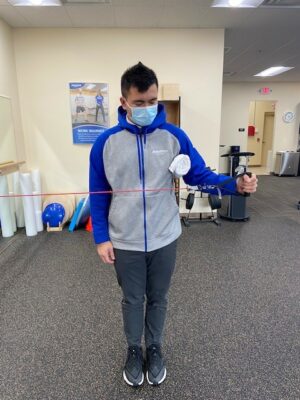
3. Standing Shoulder Internal Rotation
- Stand with a towel toll between your arm and your side
- Rotate the forearm inward
- Return the arm to the starting position
- Keep the torso stationary and allow the movement to only come from the upper arm/shoulder


You can modify for difficulty level by holding an anchored resistance band while performing the exercise. To progress even further, hold an anchored resistance band and pause for 3-5 seconds at the end of the rotation before returning to the start position.
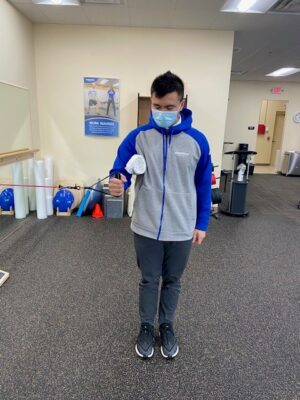
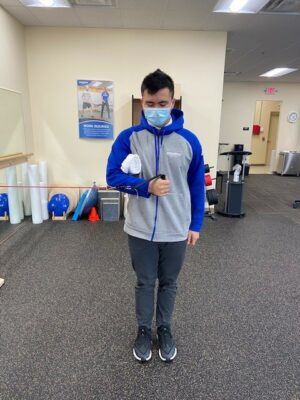
4. Prone Shoulder Row + Rotate
- Lay face down with your arm hanging off an elevated flat surface such as a bed or table
- Bend the elbow up and then rotate the forearm upward
- Return to the starting position by rotating the forearm down and then straightening the elbow
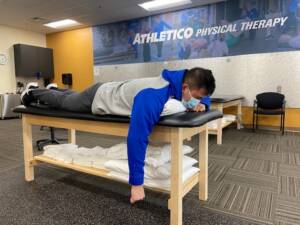
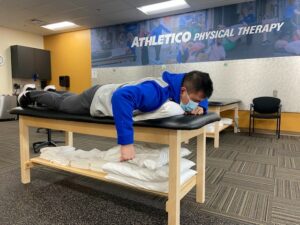
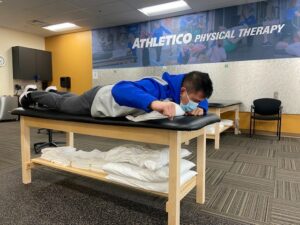
You can modify for difficulty level by performing the exercise with a one-two pound weight. To progress even further, use the weights and then pause 2-3 seconds at the top before returning to the starting position.
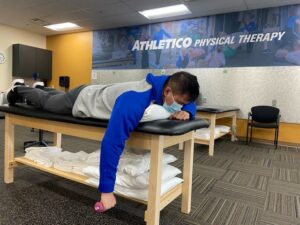
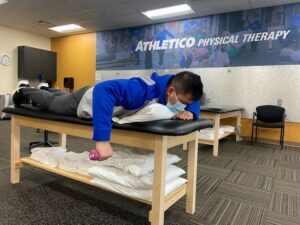
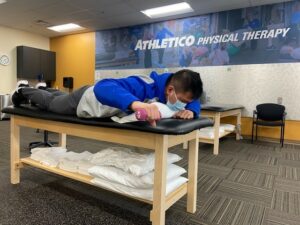
These exercises are a great starting point to address rotator cuff-related pain. It is important to have a good, upright posture while performing any exercise to ensure they are performed correctly. In addition to these exercises, be sure to schedule a free assessment with Athletico. You will work with one of our talented rehabilitation professionals to identify the next best steps to get rid of your pain! Free Assessments are available in-clinic and virtually through our Telehealth platform.
The Athletico blog is an educational resource written by Athletico employees. Athletico bloggers are licensed professionals who abide by the code of ethics outlined by their respective professional associations. The content published in blog posts represents the opinion of the individual author based on their expertise and experience. The content provided in this blog is for informational purposes only, does not constitute medical advice and should not be relied on for making personal health decisions.
